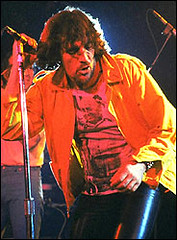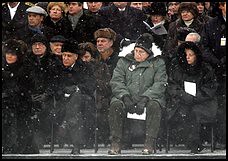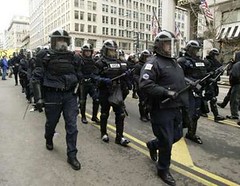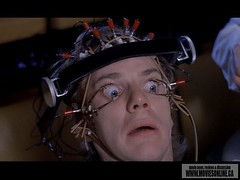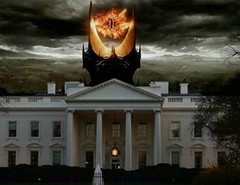Hope and ambiguity in Iraq
Just as depressing as the violence in Iraq is the indifference to it abroad. Americans and Europeans who have never lifted a finger to defend their own right to vote seem not to care that Iraqis are dying for the right to choose their own leaders. Why do so few people feel even a tremor of indignation when they see poll workers gunned down in a Baghdad street? Why isn't there a trickle of applause in the press for the more than 6,000 Iraqis actually standing for political office at the risk of their lives? Have we all become so disenchanted that we need Iraqis to remind us what a free election can actually be worth?
Explaining this morose silence requires understanding how support for Iraqi democracy has become the casualty of the corrosive bitterness that still surrounds the initial decision to go to war. Establishing free institutions in Iraq was the best reason to support the war -- now it is the only reason -- and for that very reason democracy there has ceased to be a respectable cause. The administration's ideologues -- the ones who wrote the presidential inaugural and its image of America in the service of ''the Author of Liberty'' -- have managed the nearly impossible: to turn democracy itself into a disreputable slogan. Liberals can't bring themselves to support freedom in Iraq lest they seem to collude with neoconservative bombast. Meanwhile, antiwar ideologues can't support the Iraqis because that would require admitting that positive outcomes can result from bad policies and worse intentions. Finally there are the ideological fools in the Arab world and even a few here at home who think the ''insurgents'' are fighting a just war against American imperialism. All this makes you wonder when the left forgot the proper name for people who bomb polling stations, kill election workers and assassinate candidates. The right name for such people is fascists.
I think Ignatieff is wrong in saying that "Establishing free institutions in Iraq was the best reason to support the war," because that was rarely -- if ever -- articulated by the administration as a reason at all. It was the last reason mentioned, when all other real reasons Bush took us to war (WMD, Saddam/al Qaeda connection, establishing military bases in the middle east to replace those in Saudi Arabia) failed to materialize.
But I think Ignatieff is correct in criticizing the left and the antiwar movement for its lack of support for Iraqis' initial efforts at democracy. It is the same criticism that can be leveled at the Right and the Left for the indifference shown to the Iraqi dead.
The indifference is the unfortunate byproduct of the ambiguous nature of this war. A war that should have been noble in its aims (freeing the Iraqi people of both a tyrant and crushing sanctions), but was brought about through administration deception and carried out on the quick and the cheap. The ambiguity of U.S. soldiers under-equipped and Iraqis without electricity while we wallow in sanctimony, low interest rates, and massive tax cuts. And it's an ambiguity borne of distrust of the Bush administation intent on having these elections come hell, high water, "fascist" insurgents, and voters who don't even know who they're voting for.
But, as Herbert admits, you must be hardhearted not to admire and applaud the bravery and zeal Iraqis showed yesterday, by all accounts. Yes, we lost in November as 51% of voters chose Bush's mishandling of the war and his creation of an environment in which Abu Ghraibs could exist. But progressives and liberals should not be bitter or indifferent to genuine hope.
At the Darari primary school, east of the Tigris River in central Baghdad, the courtyard teemed with people of all ages, and of all ethnic and religious groups, doing what American military commanders here have urged for so long: standing up for themselves, and laying down a marker, with their votes, that signaled they could not be intimidated into surrendering their rights by the insurgents who have terrorized the country with guns and bombs and butchers' knives.
The voters were the same people, mostly, who crowded polling centers in the fall of 2002, six months before American troops toppled Mr. Hussein, to re-elect him in a one-candidate referendum by an official vote count of 100 percent. Then, all was uniformity, and cries of fealty to the dictator.
On Sunday, everything about the voting resonated with a passion for self-expression, individuals set on their own choices, prepared to walk long distances through streets choked with military checkpoints, and to stand for hours in line to cast their ballots.
It awaits to be seen if this is the turning point that will mark the beginning of real change for Iraq. I rather doubt it, as I think fear and conservative Islam will smother liberal democracy in its crib. But it is the best news that we've had since this bloody adventure began. It is, at best, curmodgeonly not to join the Iraqis in celebrating an historic day.
